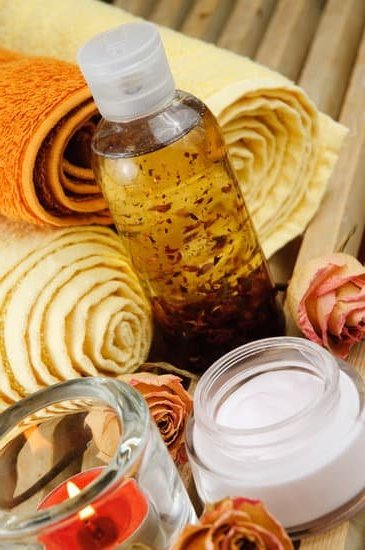Aromatherapy therapy definition focuses on the use of essential oils and plant extracts to promote health and well-being. Aromatherapy has been used for centuries across different cultures for various purposes, including relaxation, pain relief, and mood enhancement. In recent years, the popularity of aromatherapy has surged as people seek natural alternatives to traditional medicine.
The practice of aromatherapy can be traced back to ancient civilizations such as Egypt, Greece, and China, where aromatic substances were used for their medicinal properties. Today, aromatherapy continues to evolve with advancements in technology and research that shed light on its scientific basis. Aromatherapy involves the use of highly concentrated plant extracts known as essential oils that are extracted from flowers, leaves, roots, and other parts of plants.
As we delve into the world of aromatherapy therapy, it is essential to understand how scent plays a crucial role in our emotions and overall well-being. The sense of smell is closely linked to the limbic system in our brain, which controls emotions, memories, and behavior.
This connection explains why certain scents can evoke strong emotional responses or trigger specific reactions in our bodies. Aromatherapy harnesses this power of scent to promote healing and relaxation through various techniques such as inhalation, topical application, and diffusion.
The History of Aromatherapy
Aromatherapy has a rich history that dates back to ancient civilizations, where plant extracts and essential oils were used for their healing properties. Here is a closer look at the evolution of aromatherapy from its early beginnings to its modern-day practices:
- Ancient Egypt: The use of aromatic botanicals for religious rituals, medicinal purposes, and embalming practices can be traced back to Ancient Egypt. Essential oils like frankincense and myrrh were highly valued for their spiritual significance and therapeutic benefits.
- Classical Antiquity: In ancient Greece and Rome, aromatic herbs and oils were used in baths, massages, and perfumes. The famous physician Hippocrates advocated the use of aromatics for their healing properties, laying the foundation for aromatherapy as a form of alternative medicine.
- Middle Ages: During the Middle Ages, the practice of distilling essential oils spread throughout Europe. Monks in monasteries cultivated medicinal plants and developed herbal remedies that included aromatic essences. The plague outbreaks prompted people to use essential oils for disinfection and protection.
As the field of chemistry advanced in the 19th century, scientists began to study the chemical compositions of essential oils, leading to a better understanding of their therapeutic effects. Today, aromatherapy has become a popular holistic therapy that combines the benefits of scent with massage techniques or diffusion methods to promote relaxation, improve mood, and alleviate physical ailments. The historical roots of aromatherapy continue to influence its modern applications and contribute to its ongoing popularity as a complementary healthcare practice.
Understanding the Basics of Aromatherapy Therapy
Aromatherapy therapy is a holistic healing treatment that uses natural plant extracts, known as essential oils, to promote overall health and well-being. These essential oils are highly concentrated and volatile liquids extracted from different parts of plants, including flowers, leaves, stems, roots, and resins. The practice of aromatherapy dates back thousands of years and has been used for its therapeutic benefits in various cultures around the world.
How Does Aromatherapy Work?
Aromatherapy works by stimulating the olfactory system, which is linked to the brain’s limbic system – the area responsible for emotions, memories, and behaviors. When essential oils are inhaled or applied to the skin, their molecules travel through the bloodstream and interact with different receptors in the body. This interaction can help balance hormones, reduce inflammation, boost immunity, and improve overall mental and physical health.
The Role of Essential Oils in Aromatherapy
Essential oils play a crucial role in aromatherapy therapy as they contain unique properties that offer various health benefits. Each essential oil has its own distinct aroma and therapeutic properties that can be used to address specific health concerns or promote relaxation. For example, lavender essential oil is known for its calming effects and can help alleviate stress and anxiety, while peppermint essential oil is often used to relieve headaches and improve focus.
Customizing Aromatherapy Treatments
One of the key principles of aromatherapy therapy is that treatments can be customized based on individual needs and preferences. A trained aromatherapist can create personalized blends of essential oils tailored to each client’s specific goals – whether it be relaxation, pain relief, sleep improvement or emotional support. By understanding the basics of aromatherapy therapy and how it works, individuals can harness the power of scent to enhance their overall well-being and quality of life.
Different Types of Essential Oils Used in Aromatherapy Therapy and Their Benefits
Aromatherapy therapy, also known as essential oil therapy, is a holistic healing treatment that uses natural plant extracts to promote health and well-being. These essential oils are derived from various parts of plants such as flowers, leaves, roots, and bark, each carrying unique therapeutic properties. When used in aromatherapy therapy, these essential oils can have a variety of benefits for the mind and body.
One of the most popular essential oils used in aromatherapy therapy is lavender oil. Known for its calming and soothing properties, lavender oil is often used to reduce stress and anxiety, improve sleep quality, and promote relaxation. Another commonly used essential oil is peppermint oil, which has invigorating and energizing effects. Peppermint oil is often used to alleviate headaches, boost energy levels, and improve focus and concentration.
In addition to lavender and peppermint oils, there are many other types of essential oils with a wide range of benefits. For example, eucalyptus oil is known for its respiratory benefits and can be helpful in relieving congestion and improving breathing.
Tea tree oil has antimicrobial properties and is often used topically to treat skin conditions such as acne or fungal infections. Whether through inhalation, topical application, or diffusion, the use of different types of essential oils in aromatherapy therapy can provide natural relief for various physical and emotional issues.
| Essential Oil | Benefits |
|---|---|
| Lavender Oil | Calming, stress relief, improved sleep |
| Peppermint Oil | Energizing, headache relief, improved focus |
| Eucalyptus Oil | Respiratory benefits, congestion relief |
| Tea Tree Oil | Antimicrobial, skin conditions relief |
The Science Behind Aromatherapy Therapy
Aromatherapy employs the use of essential oils extracted from various plant sources to promote physical and psychological well-being. The scent of these oils plays a crucial role in how aromatherapy therapy affects our emotions and overall health.
Our sense of smell is closely linked to our emotions and memories, which is why certain scents can evoke powerful feelings or trigger specific responses within us. Through the olfactory system, scent molecules travel to the limbic system in the brain, which is responsible for regulating our emotions, memory, and behavior.
The Limbic System and Emotions
The limbic system plays a vital role in processing emotions and regulating physiological functions such as heart rate, blood pressure, and stress levels. When we inhale the aroma of essential oils during aromatherapy therapy, these scent molecules can directly influence the limbic system, triggering emotional responses within us. For example, lavender essential oil is known for its calming properties and can help reduce anxiety and improve sleep quality by promoting relaxation within the limbic system.
The Psychological Impact of Scents
Certain scents have been studied for their psychological effects on mood and well-being. For instance, citrus oils like lemon or orange are often used in aromatherapy therapy for their uplifting properties that can help combat feelings of depression or fatigue.
On the other hand, earthy scents like cedarwood or patchouli are known for their grounding effects that can provide a sense of stability and security during times of stress or uncertainty. By understanding how different scents impact our emotions and mental state, we can harness the power of aromatherapy therapy to improve our overall well-being.
Aromatherapy Therapy Techniques
Aromatherapy therapy encompasses various techniques for harnessing the benefits of essential oils. From inhalation to topical application and diffusion, each method offers unique ways to experience the healing properties of these natural plant extracts. Here are some popular techniques used in aromatherapy therapy:
1. Inhalation: This method involves breathing in the aroma of essential oils through the nose or mouth. Inhalation can be done by directly inhaling from a bottle, using a diffuser to disperse the scent into the air, or adding a few drops of oil to a bowl of steaming water for steam inhalation. This technique allows the aromatic molecules to reach the limbic system in the brain, which plays a role in emotions and memory.
2. Topical Application: Applying essential oils topically involves diluting them with a carrier oil and massaging them into the skin. The oils are absorbed through the pores and can provide targeted relief for specific concerns like muscle tension, inflammation, or skin conditions. It’s important to do a patch test before applying any essential oil directly on the skin to avoid irritation or allergic reactions.
3. Diffusion: Using an essential oil diffuser is a popular way to enjoy aromatherapy therapy at home or in a spa setting. Diffusers disperse micro-sized particles of essential oils into the air, creating a pleasant and therapeutic atmosphere. Different types of diffusers include ultrasonic, nebulizing, evaporative, and heat diffusers, each with its own unique way of releasing the aroma into the air for long-lasting effects.
Whether you prefer inhalation, topical application, or diffusion, incorporating aromatherapy therapy techniques into your daily routine can help improve your overall well-being and promote relaxation and balance. Experiment with different methods to find what works best for you and enjoy the transformative power of scent in your life.
The Benefits of Aromatherapy Therapy
Aromatherapy therapy offers a wide range of benefits that can positively impact both our physical and emotional well-being. One of the most common and widely recognized benefits of aromatherapy is its ability to reduce stress and anxiety levels.
Essential oils such as lavender, chamomile, and rosemary are known for their calming properties, helping to promote relaxation and alleviate feelings of tension. Whether diffused in the air or applied topically, these essential oils can help create a soothing environment that promotes overall relaxation.
In addition to stress reduction, aromatherapy therapy can also provide relief from various types of pain. Essential oils like peppermint, eucalyptus, and ginger have natural analgesic properties that can help alleviate headaches, muscle aches, and even chronic pain conditions. When used in massage oils or added to bath water, these essential oils can penetrate the skin and work to reduce inflammation while providing a sense of comfort and relief.
Another significant benefit of aromatherapy therapy is its ability to improve sleep quality. Essential oils such as lavender and frankincense have sedative effects that can help calm the mind and body, making it easier to fall asleep and stay asleep throughout the night.
By incorporating these essential oils into bedtime routines through diffusers or pillow sprays, individuals may experience deeper and more restful sleep cycles, leading to overall improved well-being. Whether used individually or in combination with other techniques, aromatherapy therapy offers natural solutions for enhancing relaxation, managing pain, and achieving better sleep quality.
Aromatherapy and Mental Health
Aromatherapy has been used for centuries as a natural way to improve mental health and well-being. The use of essential oils in aromatherapy therapy can help alleviate symptoms of anxiety, depression, and post-traumatic stress disorder (PTSD). These powerful plant extracts have unique properties that can promote relaxation, uplift mood, and reduce feelings of stress and tension.
One of the key ways essential oils can help with mental health is through their ability to impact the limbic system in the brain. The limbic system plays a role in emotions, behavior, motivation, and long-term memory. When inhaling essential oils through diffusion or topical application, they directly affect the limbic system, influencing emotions and promoting a sense of calm.
Research has shown that certain essential oils have specific benefits for mental health conditions. For example, lavender oil is known for its calming properties and can help reduce symptoms of anxiety and insomnia. Bergamot oil has been found to have mood-lifting effects and may be beneficial for those experiencing depression. Additionally, studies have shown that using rose essential oil can help decrease levels of cortisol, the stress hormone, promoting relaxation and a sense of well-being.
| Essential Oil | Mental Health Benefit |
|---|---|
| Lavender | Calming properties, reduces anxiety and insomnia symptoms |
| Bergamot | Mood-lifting effects, beneficial for depression |
| Rose | Decreases cortisol levels, promotes relaxation and well-being |
Aromatherapy Therapy Definition
Aromatherapy is a holistic healing treatment that uses natural plant extracts, known as essential oils, to promote physical, emotional, and mental well-being. These aromatic oils are believed to have therapeutic properties that can positively impact various aspects of an individual’s health. The practice of aromatherapy has a rich history that dates back to ancient civilizations where plants and their extracts were used for medicinal purposes.
The core principle behind aromatherapy therapy is the belief that inhaling the aroma of these essential oils or absorbing them through the skin can stimulate brain function and promote healing in the body. The olfactory system, which is responsible for our sense of smell, plays a crucial role in how essential oils trigger responses in the brain, influencing emotions, mood, memory, and even physiological functions like heart rate and blood pressure.
Overall, aromatherapy therapy offers a natural and non-invasive approach to improving one’s overall well-being. Whether you are looking to reduce stress, alleviate pain, enhance sleep quality, or manage mood disorders like anxiety and depression, aromatherapy can provide a gentle yet effective solution. By incorporating this ancient practice into your daily routine, you can experience the numerous benefits of aromatherapy and enhance your quality of life in a holistic way.
Frequently Asked Questions
What Is the Meaning of Aromatherapy Treatment?
Aromatherapy treatment involves using essential oils extracted from plants to promote physical and psychological well-being. These oils are typically inhaled, applied to the skin, or added to baths to stimulate healing and relaxation.
How Do You Explain Aromatherapy?
Aromatherapy is a holistic healing treatment that utilizes the therapeutic properties of essential oils. These oils can be derived from flowers, herbs, roots, and other plant parts to address various health concerns such as stress relief, pain management, and improved sleep quality.
What Type of Therapy Is Aromatherapy?
Aromatherapy is considered a complementary therapy that falls under the category of alternative medicine. It focuses on harnessing the natural benefits of aromatic plant compounds to enhance both physical and emotional health. By incorporating essential oils into daily rituals, aromatherapy aims to promote overall wellness and balance in individuals.

Are you looking for a natural way to improve your health and wellbeing?
If so, aromatherapy may be the answer for you.






